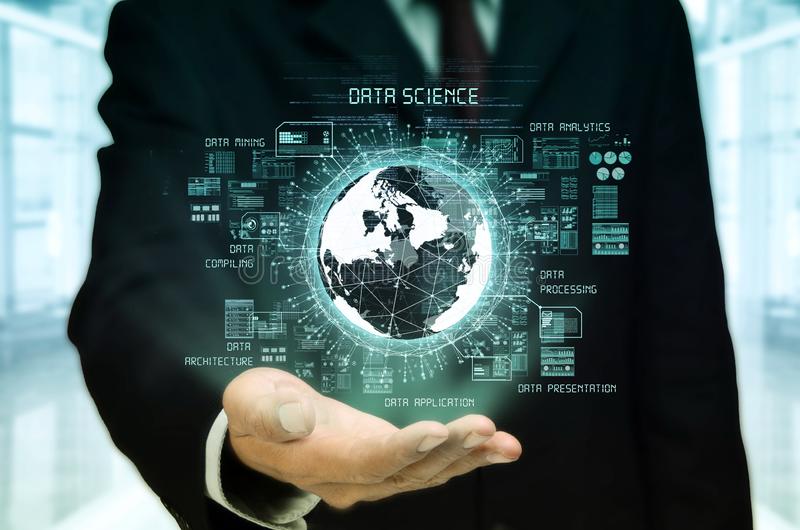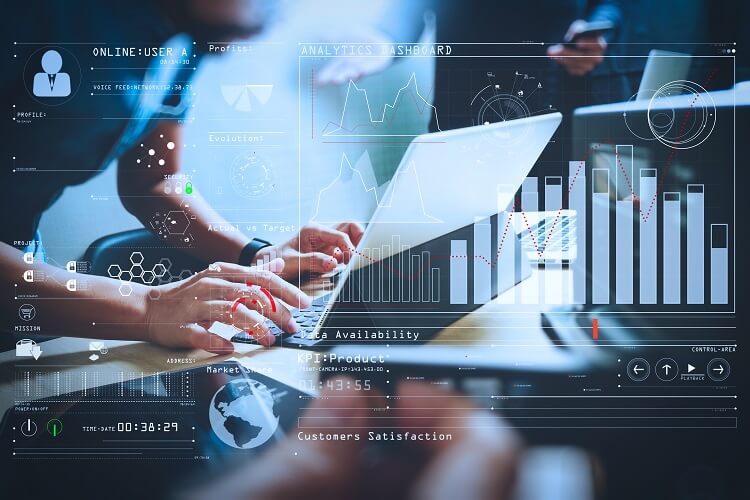Mumbai is a city of contrasts, with luxurious skyscrapers towering above slums, and harsh examples of socioeconomic injustice. For many inhabitants, the lack of equal access to economic opportunities, healthcare, education, and basic comforts feeds the cycle of poverty. In spite of these difficulties, Data Science Course proves to be an effective instrument that may address and overcome these disparities.
Table of Contents
Understanding the Divide:
The socioeconomic gap in Mumbai takes several forms:
Houses: In contrast to informal settlements devoid of basic facilities, central districts provide expensive houses.
Education: Children from low-income homes often lack access to high-quality education.
Healthcare: While private treatment continues to be costly, public healthcare institutions are overworked.
Employment: Jobs in the informal economy are often insecure, with limited job security
and low benefits.
Is It Possible For Data Science To Lessen The Social Inequality Gap In India?
We have by far seen data science’s positive aspects. However, what we are neglecting to see is that, despite data science’s enormous benefits and potential to keep the world together, if only a small number of people or organizations have access to technology while others do not, then the privileged ones will race ahead, increasing inequality to an extent that will never be recovered.
The way we live, work, and connect is being changed by “the fourth industrial revolution.” This has a danger but also holds enormous promise for improving society, healing illness, and creating employment. If this new technology does not reach everyone, inequality in the social, economic, and even environmental spheres may become worse.
Data Science’s Function:
Data science makes use of data to forecast trends, glean insights, and guide choices. Given the socioeconomic imbalance in Mumbai, it can: –
Identify Vulnerable Populations: Examine demographic information to determine which regions need the most assistance.
Optimize Resource Allocation: Make more effective use of resources by allocating them in accordance with data-driven insights into community requirements.
Improve Service Delivery: Make use of predictive analytics to improve the provision of public services like healthcare and education.
Promote Financial Inclusion: Develop inclusive financial services and microcredit schemes by analyzing economic data.
How It Can Help?
Data science may help close the inequality gap since it allows us to learn from historical data and improve performance. This is especially true when combined with machine learning. Data science might be used to automate repetitive operations, reduce human error, and use cognitive-based technologies to assist people make choices more quickly. Data science has the potential to significantly impact health care and wellbeing, with AI and other cutting-edge technologies potentially helping to cure complicated illnesses like cancer. Economic development might result from these technologies’ potential being realized in the fields of education and agriculture. Based on a PwC poll, it was shown that 47% of participants thought AI will help with wealth disparity and resolve social problems in India.
While it’s true that technology has exacerbated inequality, it also offers the potential to close the gap. According to 73% of poll respondents, artificial intelligence (AI) has a significant role in education and will help reduce wealth disparity. Since a lack of knowledge and skills is one of the main causes of the growing economic gap, using AI and machine learning in the education sector can close the gap, elevate everyone, and foster a more inclusive society.
Initiatives and Case Studies:
A number of efforts demonstrate how data science may be transformative:
Slum Rehabilitation: Mapping informal settlements and organizing infrastructure upgrades using geospatial data.
Medical Access: Use predictive analytics to anticipate illness outbreaks and distribute resources appropriately.
Education: Tailored educational interventions and enhanced school performance using data-driven insights.
Fastest Digital Adopter:
According to a 2017 survey, India is the second-fastest digital adopter worldwide, behind only China in terms of adoption. However, just 17% of people in the world have internet access, despite the fact that there are over 560 million online users. The current rate of internet penetration is around 10%. Only 29% of internet users are female, with 71% of users being male. Approximately 21% of the population accesses the internet via a mobile device.
These contradictions already point to the stark differences that exist in society between males and females, urban and rural areas, and socioeconomic classes. How skewed is our society? The powerful few will continue to be the only ones able to use these technologies, despite the fact that they have the potential to completely transform the nation—as shown before with just minor variations. Therefore, it is exceedingly unlikely that this technology would reach every person in India for the sake of collective progress.
Difficulties and Moral Issues
Although promising, using data science into social policy is fraught with difficulties:
1.Data Privacy: Preserving private data while using it for public benefit.
2.Bias in Data: Making sure algorithms are impartial and fair, especially when used in decision-making procedures.
3.Digital Divide: Closing the accessibility and digital literacy gaps in society.
Prospective Paths:
Future initiatives should concentrate on the following areas to successfully address socioeconomic disparity in Mumbai: –
Interdisciplinary Collaboration: Including technologists, social scientists, and policymakers in the co-creation of solutions.
Community Engagement: Including neighborhood groups in the gathering and analysis of data to guarantee inclusion and relevance.
Continuous Innovation: Making use of cutting-edge technology for in-the-moment decision-making, such artificial intelligence and machine learning.
Revolutionary Technologies:
It is true that these revolutionary technologies will have a significant influence on the creation of jobs, social conflict, and the potential to significantly boost GDP, but they also carry the risk of permanently erecting a barrier between those with access and those without. Access will make people wealthier, healthier, and more developed, while those without it will continue to be impoverished, less educated, unwell, and frail. Everyone should work to promote inclusivity and figure out how to use these advanced technology in society, not only the government. The day when growing inequality tears apart society is not far off; data science should be the next human right and everyone should have equitable access to this technology.
Final Thoughts:
Data science offers a singular chance to alleviate the systemic socioeconomic disparity that exists in Mumbai by generating evidence-based policy choices and actionable insights. However, ethical concerns, community engagement, and a dedication to using technology for inclusive development are necessary for its effective implementation. Mumbai can advance toward a future where all citizens have equal access to opportunities and basic services by using data, making the city more prosperous and equitable for everyone.
Interested in learning more about Data Analysis? Study the finest Data Science Course in Mumbai being offered by Excelr Solutions. Crafted by the masters of the data science community, this course helps you get your career on the right track. Enroll now!
Business name: ExcelR- Data Science, Data Analytics, Business Analytics Course Training Mumbai
Address: 304, 3rd Floor, Pratibha Building. Three Petrol pump, Lal Bahadur Shastri Rd, opposite Manas Tower, Pakhdi, Thane West, Thane, Maharashtra 400602
Phone: 09108238354,
Email: enquiry@excelr.com


